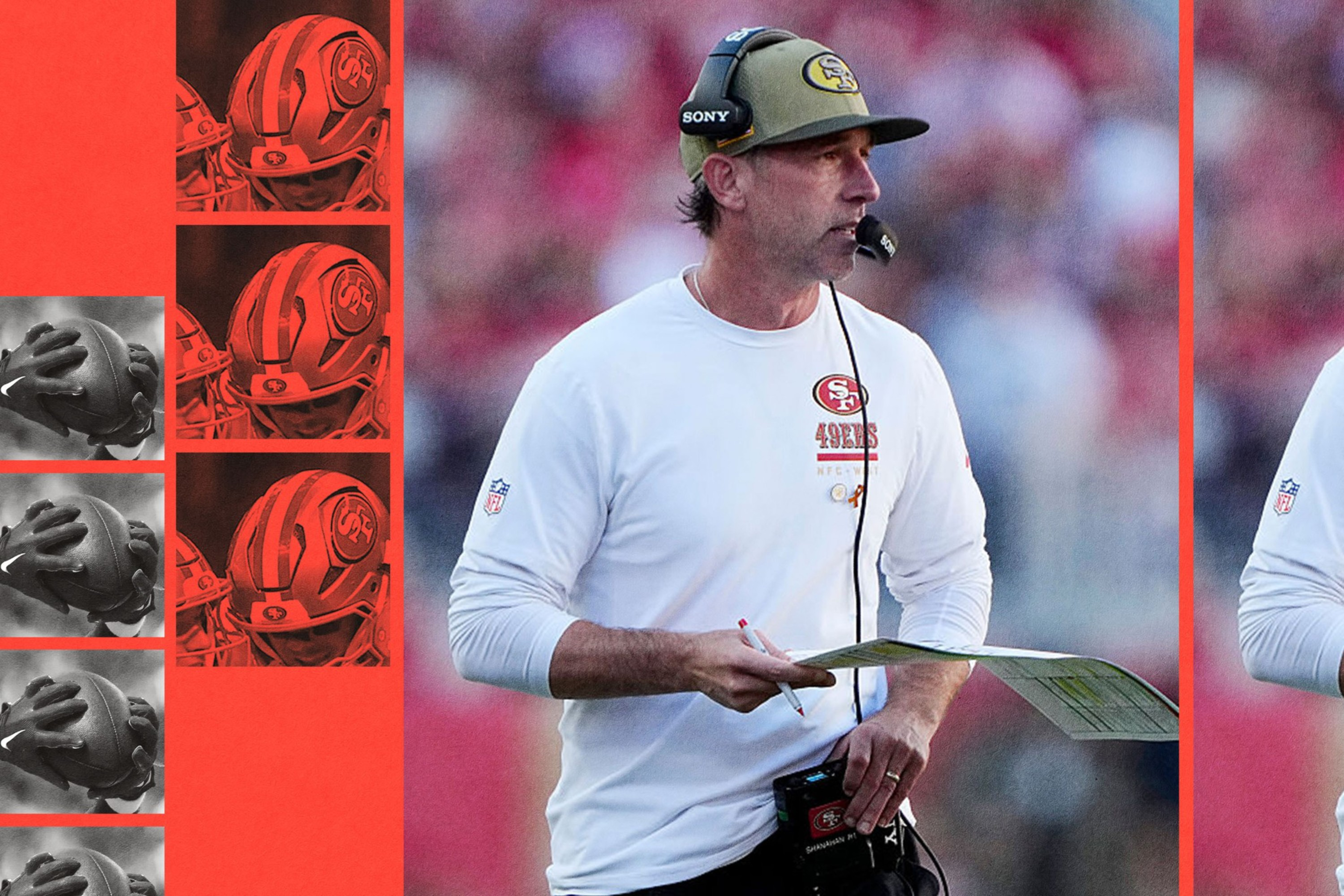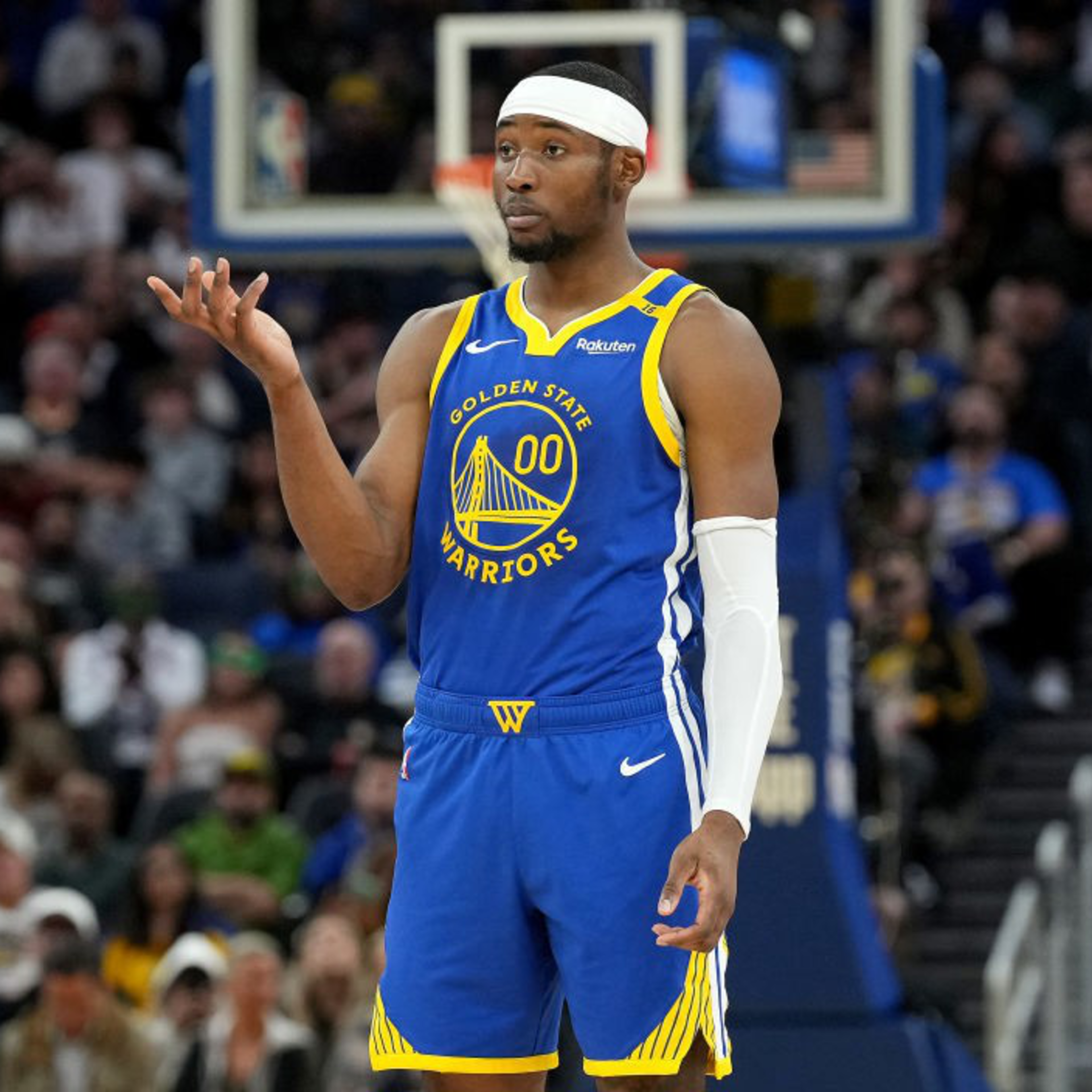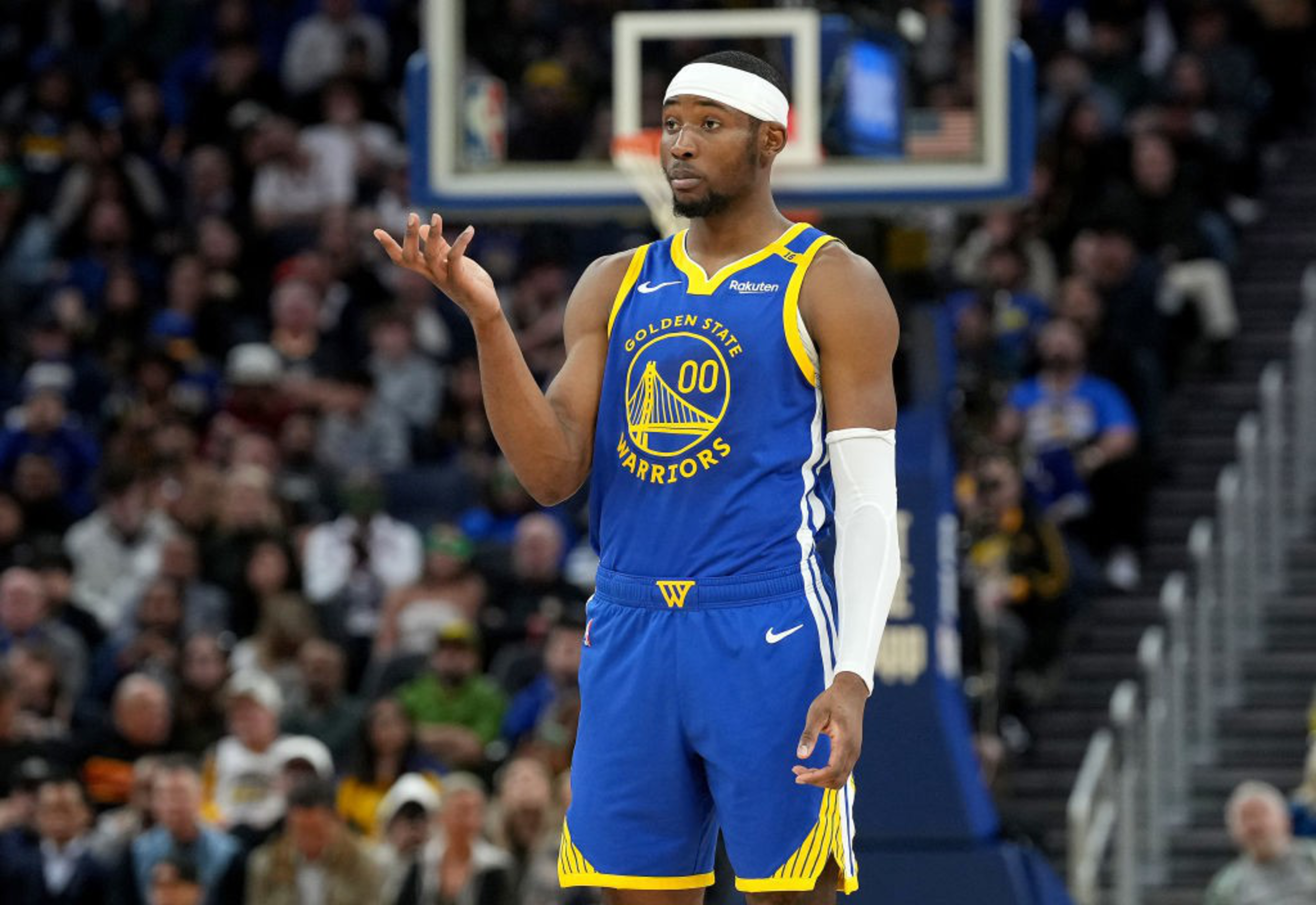Want the latest Bay Area sports news delivered to your inbox? Sign up here to receive regular email newsletters, including “The Dime.”
The on-and-on-and-ongoing Jonathan Kuminga-Warriors stalemate reached a new stage recently, though, alas, not one that seems inclined to trigger a sudden conclusion.
Or to make anybody, especially Kuminga, 100% happy.
The likeliest scenario hasn't changed: Kuminga and the Warriors have always seemed to be — eventually — headed toward a short-term agreement that would pay him a market-rate salary and lead to better conditions for a trade either in the middle of the coming season or next offseason.
The chances of a sign-and-trade deal this summer to another team, though, have never been zero, mostly because it has always seemed to be Kuminga's preferred result. And also the preferred result, if the Warriors could get an acceptable trade package in return, of several important people in the organization.
But after more than a month of fruitless and brief negotiations with Kuminga and a few other teams, the options seem to be narrowing, at least as far as the Warriors are concerned and probably for Kuminga's camp, too.
The word I got when I checked in with a Warriors source on Sunday: Kuminga won't be traded this summer. He'll be back on the Warriors' roster to start the season. And it'll either come when he signs the Warriors' offer or accepts the $7.9 million one-year qualifying offer.
Now, of course, we all can read some or most of this as Warriors positioning in lieu of making a final push for a more favorable sign-and-trade agreement. The Warriors have definitely had some discussions with other teams about Kuminga. And once you start having discussions, you can always finish one of them, no matter what your public stance happens to be at the time.
But several sources have indicated that the Warriors have been unenthusiastic about the general idea of a Kuminga sign-and-trade from the outset. The broad context is that Joe Lacob remains a fan of Kuminga's and is determined to either keep the 22-year-old on the roster or get real value in return. And he's willing to wait it out.

Whether that commitment changes as the season closes in, we shall see. But what I know is that Mike Dunleavy doesn't have a lot of pressure to trade Kuminga quickly and cheaply just to get a resolution. The internal pressure is actually the opposite.
The Athletic's Sam Amick has reported that the Sacramento Kings seem to be the team chasing Kuminga the hardest (opens in new tab)and that they've offered a deal that would pay Kuminga $63 million over three years and send Malik Monk and a protected future first-round pick going back to the Warriors. Amick reports that the Warriors want an unprotected pick instead. I would add that they likely are uninterested in adding Moses Moody or Buddy Hield into this deal, which would be necessary due to base-year compensation rules.
I believe that moving to the Kings — knowing that he'd go right into a significant role — would almost certainly be the best outcome available for Kuminga. It's logical and wise for Kuminga's camp to push for it. If he was an unrestricted free agent, he probably would've held an introductory news conference in Sacramento many weeks ago.
But Kuminga's a restricted free agent. The Kings can't even present him an offer sheet — they're over the cap and could only acquire him via sign-and-trade. And I don't think the Warriors have heard any sign-and-trade offer, from the Kings or anybody, that they've been remotely tempted to accept.
So maybe the Warriors truly are digging in, determined to nudge Kuminga into either the two-year, $45-million offer (but only guaranteed for the first year) reported by ESPN's Anthony Slater, or the qualifying offer that would essentially set Kuminga up as a lame-duck Warrior due to hit unrestricted free agency next summer.
There's a further complication: As Marc Stein has reported on his Substack, the Warriors, as part of their offer, want Kuminga to waive his right, as a player on a one-year guarantee, to block any trade during the first year.
So, again, posturing is always part of trade market or free-agent commentary by any team official. Especially when it's a situation as loaded with frustration, ambition, and financial pressures as this one has been for a while now.

Kuminga is young, talented, and has waited four years to get a permanent rotation role with the Warriors. He didn't blend well with Jimmy Butler last season and there's no certainty anything will be better next season — or that Steve Kerr will try endlessly to make it work. So it's justifiable for Kuminga to want to go elsewhere. He probably should be elsewhere.
But if the right sign-and-trade deal isn't there, the Warriors are under no requirement to do anything other than exactly what they're doing right now. And say what they're saying right now.
It's still relatively easy to issue general positions because there's no pressing time limit. The Warriors essentially already have most of the rest of their offseason done — Al Horford and De'Anthony Melton are presumed ready to sign moderate deals as soon as the Warriors can settle the Kuminga situation. Gary Payton II is also believed to be in a similar situation. Nobody, to this point, is in a rush.
And the deadline for Kuminga to accept the qualifying offer isn't until Oct. 1 — and even that can be pushed back if both sides agree to it.
So what's the practical solution? Maybe I should've led with my moderate proposal, but it's so simple that I think it fits better at the end of sketching out this over-complicated situation. There are a lot of reasons why this has gone nowhere so far.
It's probably not yet time for the grand compromise. But it will be time, eventually. When it happens, it likely should involve the Warriors upping the guarantee in the second year of their offer — from $0 to perhaps $14 million, so the total guarantee would be above $30 million over two years. (And by giving him a second-year guarantee, the Warriors would wipe out Kuminga's right to block a trade next season.)
This would give the Warriors more credence when they argue that they've got the highest offer on the table and would likely still be a very tradeable contract in February or next July. This also would give Kuminga more security than what the Warriors are offering right now and significantly more than taking the qualifying offer.
Also, I guarantee that both sides will be equally annoyed at me for making this suggestion. There couldn't be a better validation than that.
Section 415: Brock Purdy, Mac Jones, and the 49ers’ path to the playoffs

Section 415: Making sense of the Warriors’ uneven start

Section 415: How Natalie Nakase turned the Valkyries into an immediate force


